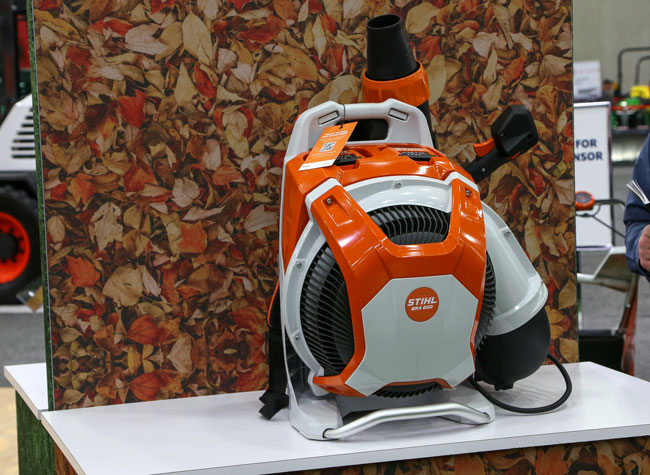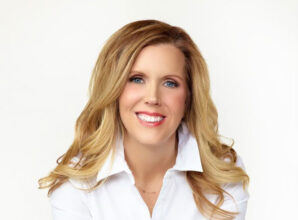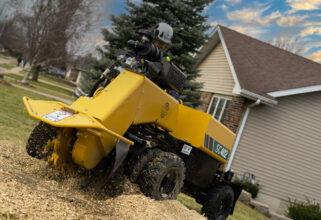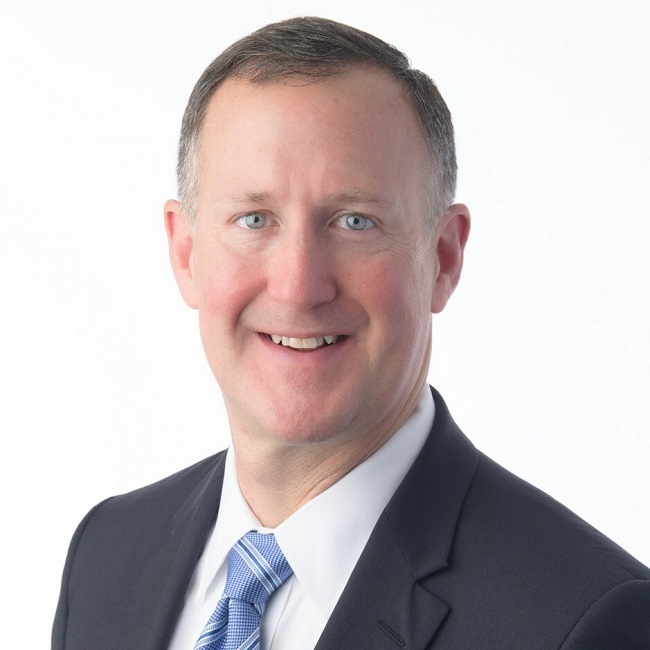Stihl reports 1% growth in “a year of headwinds”
Stihl held a news conference on April 29 to discuss its financial performance for 2024. A privately held company based in Germany, Stihl does not release quarterly or annual financial statements in the same way that publicly traded companies do, so we were glad to sit in on the Stihl Financial Press Conference recapping its year.
“It was a year of headwinds for many industries,” said Michael Traub, chairman of the executive board for Stihl. “That’s as well valid for our industry, the outdoor power equipment industry. We face the effects of continued consumer restraint, profound geopolitical tensions in several key markets, and we had to navigate through a highly volatile economic environment.”
“The good news of all of that is we did hold more than our ground,” said Traub, “and we even were able to grow. We’re back on the growth path and our revenue rose to €5.33 billion, an increase of 1.1% against the previous year.”
Traub said that 2024 was a year of many challenges for Stihl, both economic “and due to natural disasters that affected us directly both in our home region in Germany, which is home to our headquarters, as well as in Brazil, home to one of our largest production sites. Many of our colleagues here and there were personally impacted facing flooded homes, evacuations and prolonged power outages. In these moments our true spirit became visible, a spirit of solidarity. I’m very deeply grateful for the sense of community across continents and it’s really what makes us different.”
Sales News
North America is Stihl’s largest market; Traub said the manufacturer invoices around 1/3 of its global revenue here. He said Still held its ground despite weak consumer sentiment. Stihl expanded its dealer network to more than 11,000 retailers around Canada and the United States.
In Latin America, Stihl, according to Traub, “experienced a mix of political uncertainty, extreme weather and economic weakness.
He said that Europe was very tense, and the war in the Ukraine continues to impact its economic outlook.
Referring to the diversity of its global markets, Traub announced that Stihl is reorganizing its international sales organization and structure. “Starting in 2025, we will work globally with eight clearly defined sales regions that include North America, Latin America, two regions in Western Europe, plus Eastern Europe, Africa, Asia and Oceania. With that we want to manage our global business with greater speed and flexibility to better address the diverse needs and expectations of the global markets in these times of transformation.”
Stihl strategy
“It’s clear that our most important task remains the same as we have outlined in the last couple of years. It’s managing the transformation from combustion to battery power.” Traub said this task is far from simple, involving technological and cultural shifts. He said that manufacturer has a clearly defined strategy and deep conviction about this effort.
Stihl has set a target, “and we expect that our battery powered tools will account for 35% of our total sales volume by 2027,” said Traub. He said it is 25% today. “That obviously underlines our ambition for dual technology leadership both in combustion as well as in battery.”
Whether Stihl reaches that target will depend, he said, on the development of market and consumer preference in different regions of the world. “We’re not dogmatic in that regard; we will offer the customers what they need when they need it.”
He looks at it as an opportunity, not a constraint. “Battery for us means innovation and user-friendly operation. The level of power already increasingly matches that of combustion engine products that we produce and distribute. He pointed to a new backpack blower and professional hedge trimmer as examples of battery technology advancing to bring new benefits.
“On the other hand, we also know that many professionals as well as private users continue to rely on the combustion-powered equipment and for good reason,” said Traub. “Our message here is very clear: We’re building up our battery offering not by putting combustion down but by expanding customer choice.”
On dealer expansion in North America
OPE+ asked Traub about its expanding dealer network in North America, and about its evolving ecommerce positioning.
“We have deep relationships with 11,000 plus retailers, and 2/3 of them are classical OPE dealers that you find across the country. We enjoy very good relationships in the farm and ranch business in the United States. We have a very strong relationship with companies like Ace Hardware and we enjoyed good expansion of that network recently. Last but not least, for15 years Stihl has had a very strong relationship as well with John Deere dealers. So our growth really goes in all directions.”
“The expansion of our retail network is organic, filling out gaps and going into areas where we might not be as densely populated and following the consumers. We want to be there where they shop and where they look for solutions.”
“Our ecommerce strategy is that we support our retailers and what they want in ecommerce sites. We have launched recently in the US as well a marketplace where retailers can participate and sell through that marketplace. We do not operate our own U.S. ecommerce sites. We want to work in collaboration with our trade partners in order to make them stronger and as well make use of that important channel.”
On tariffs
Melissa Eddy, New York Times business reporter based in Germany, asked Traub how U.S. tariff policies are impacting both sales and production in the U.S.
“This is obviously something that’s on our mind every morning, and it kind of changes every day,” said Traub. “There’s not even a strategy to be defined and some of the things seem to be evolving. Sometimes it’s obviously better not to react to daily things are happening. One third of our business is in North America, and we have had our factory in Virginia Beach since 1974. What the current administration wants is more investment in the United States. We did that in 1974 and not because of administrative pressure but because we believe that it’s the right thing, to be local. Already, 61% of our components are sourced in the United States.”
“On the other hand, you obviously have a lot of components and batteries that come from Europe or Brazilian factories. We strongly believe in global trade; we strongly believe in free trade. Tariffs are nothing else but taxes and that at the end of the day consumers will pay them. While we do everything to avoid increases in market prices, I’ve fear that if escalation continues, we have no choice but to pass on costs to the marketplace which drives inflation.
Outlook
Traub said he anticipates Stihl will continue on its growth track. “We anticipate moderate growth in the low single digit range over the next couple of years,” he said, “while at the same time we will be prepared, and we are, for continued volatility in the markets and that goes across all regions and businesses.”







